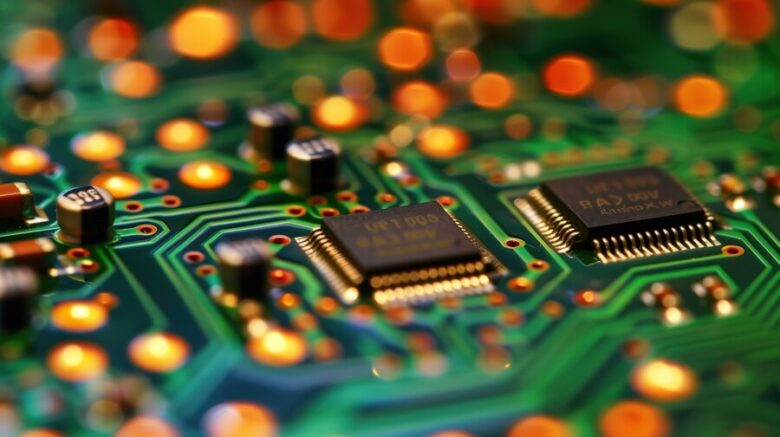
Introduction to Defense Technology
Defense technology is evolving at a staggering pace. As nations strive to protect their interests, innovative solutions are emerging that reshape the battlefield and redefine security. From advanced military equipment to cutting-edge artificial intelligence applications, every facet of defense is being transformed.
These innovations not only enhance capabilities but also raise questions about ethics and future implications. In this fast-paced world where threats can come from unexpected corners, staying informed about the latest advancements in defense technology becomes crucial for everyone—from policymakers to everyday citizens. Let’s delve into these exciting developments and explore what they mean for our global security landscape.
Advancements in Military Equipment
Military equipment has seen remarkable advancements in recent years, driven by the need for enhanced effectiveness and adaptability. Modern tanks now feature advanced armor systems that can withstand high-caliber rounds while maintaining mobility and speed.
Drones have revolutionized surveillance and combat missions. They offer real-time intelligence without risking human lives on the front lines. Equipped with precision-guided munitions, these unmanned aircraft can strike targets with unprecedented accuracy.
Additionally, wearable technology is becoming integral for soldiers on the ground. Smart helmets provide vital data through augmented reality displays, improving situational awareness during operations.
Moreover, modular weapon systems allow for customized configurations tailored to specific mission requirements. This flexibility enhances operational efficiency and improves overall force readiness in diverse environments.
These innovations exemplify how military equipment continues to evolve, shaping modern warfare’s landscape into a more dynamic battlefield where agility meets cutting-edge technology.
Artificial Intelligence and Machine Learning in Defense
Artificial intelligence (AI) and machine learning are transforming defense technology in unprecedented ways. These innovations enhance decision-making processes, enabling military leaders to analyze vast amounts of data swiftly.
Predictive analytics is a game changer. It allows for real-time assessments of threats and opportunities on the battlefield. AI algorithms can sift through satellite images, social media feeds, and communication signals to identify potential risks before they escalate.
Additionally, autonomous systems powered by machine learning are reshaping combat strategies. Drones equipped with AI can conduct surveillance missions or engage targets with minimal human intervention, increasing efficiency while reducing casualties.
Training simulations also benefit immensely from these technologies. By creating realistic scenarios that adapt based on user actions, armed forces can prepare soldiers more effectively for actual conflict situations.
The integration of AI into logistics further streamlines operations. Predictive maintenance reduces equipment failures and optimizes supply chains, ensuring troops have what they need when it matters most.
Emerging Technologies: Hypersonic Missiles and Laser Weapons
Hypersonic missiles and laser weapons are redefining the battlefield landscape. These technologies promise unprecedented speed and precision, making traditional defense systems nearly obsolete.
Hypersonic missiles travel at speeds exceeding Mach 5. Their ability to maneuver mid-flight complicates interception efforts for existing missile defense systems. This shift in warfare dynamics gives nations that harness this technology a strategic advantage.
On the other hand, laser weapons offer pinpoint accuracy with minimal collateral damage. Utilizing focused energy beams, these systems can disable targets almost instantaneously. Their operational costs are significantly lower compared to conventional munitions, leading to more sustainable military strategies.
Both innovations reflect a race among countries to enhance their defensive capabilities while maintaining deterrence measures. As research continues, we may witness even bolder applications of these advanced technologies on the global stage. The implications stretch beyond mere military uses; they could reshape international relations entirely as nations vie for dominance in defense technology advancements.
Ethical Concerns and Challenges with Defense Technology
As defense technology evolves, ethical concerns arise. The use of autonomous weapons raises questions about accountability. Who is responsible if a drone makes an error?
Privacy issues also come into play with surveillance technologies. Advanced monitoring systems can infringe on civil liberties while aiming to protect national security.
Moreover, the potential for arms races looms large. Countries investing in cutting-edge tech may provoke others to follow suit, escalating tensions globally.
There’s also the risk of misuse by non-state actors. Cybersecurity threats are heightened as sophisticated tools fall into the wrong hands.
Equally important is the mental health impact on soldiers who interact with these advanced systems. The detachment from traditional combat could lead to unforeseen psychological consequences.
Navigating these challenges requires public dialogue and strong regulations within military frameworks.
Future of Defense Technology: Predictions and Possibilities
The future of defense technology is poised for groundbreaking transformations. As nations invest heavily in research and development, we can expect sophisticated advancements that enhance operational effectiveness.
One area to watch is autonomous systems. Drones and unmanned vehicles will likely become more prevalent on the battlefield, working alongside human counterparts. This shift could redefine military strategies and tactics.
Quantum computing also holds promise for defense capabilities. With its potential to process vast amounts of data at lightning speeds, it may offer unparalleled advantages in cybersecurity and intelligence analysis.
Moreover, biotechnology might play a crucial role in soldier enhancement. From advanced medical treatments to exoskeletons that boost physical capabilities, the human element of warfare could evolve dramatically.
As these technologies emerge, ethical considerations will remain paramount. Navigating issues surrounding accountability will be essential as militaries adopt increasingly complex systems into their operations.
The Impact of Artificial Intelligence on Defense Technology
Artificial Intelligence (AI) is reshaping defense technology in unprecedented ways. It enhances decision-making processes by analyzing vast amounts of data rapidly. Military strategists can access real-time insights, leading to more informed tactics.
Autonomous systems are emerging as game changers on the battlefield. Drones equipped with AI can execute missions without direct human control, increasing efficiency while minimizing risk to personnel. These technologies allow for precision strikes and surveillance operations that were once unimaginable.
Moreover, AI algorithms improve cybersecurity measures against evolving threats. They enable proactive defenses that adapt quickly to potential intrusions or attacks.
The integration of machine learning facilitates predictive maintenance for military equipment, reducing downtime and costs associated with repairs. This innovation ensures that forces remain operationally ready at all times.
AI’s influence extends beyond hardware; it also impacts training programs through simulations that mimic complex combat scenarios, preparing soldiers for various challenges they may face in the field.
Conclusion: The Future of Defense Technology
The landscape of defense technology is rapidly evolving. With innovations emerging at an unprecedented rate, the future holds exciting possibilities. From advanced military equipment to artificial intelligence applications, the potential for enhanced national security and operational efficiency is vast.
Emerging technologies such as hypersonic missiles and laser weapons are not just theoretical concepts anymore; they are becoming integral parts of modern arsenals. These advancements could redefine combat dynamics on land, sea, and air.
However, alongside these rapid developments come ethical concerns that warrant serious consideration. The implications of deploying autonomous systems in warfare raise questions about accountability and moral responsibility. As we integrate more AI into our defense mechanisms, navigating these challenges will be crucial.
As we look forward to what lies ahead in defense technology, it’s clear that innovation will continue to drive change. Nations must balance technological advancement with ethical standards to ensure a secure future for all. Embracing this dual approach may pave the way for a safer world—one where cutting-edge technology works harmoniously with our shared values and responsibilities in safeguarding humanity.




